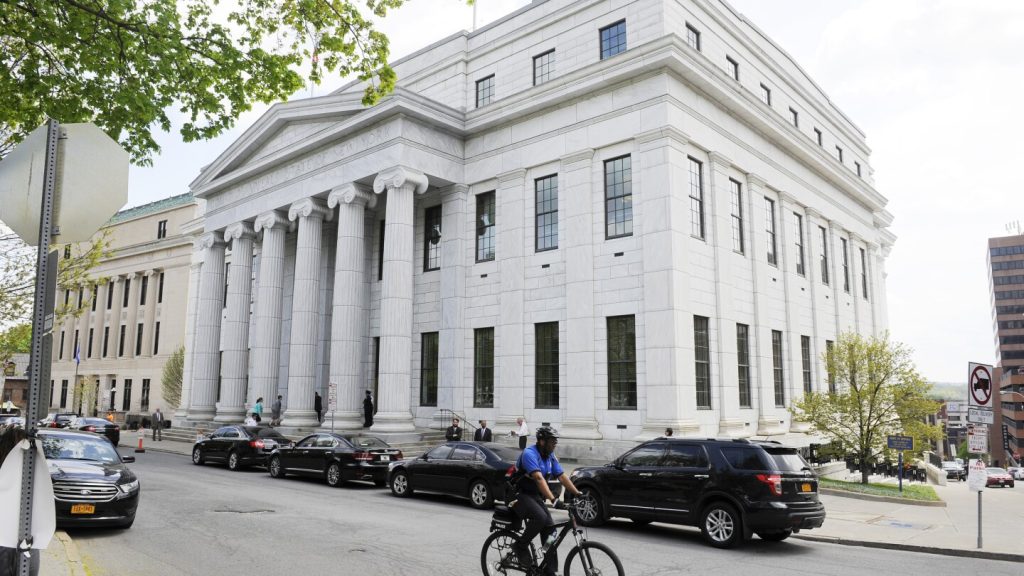The state of New York can continue to require companies with health insurance plans to cover medically necessary abortions, as ruled by the state’s highest court on Tuesday. The Roman Catholic Diocese of Albany and other religious groups had argued that the rule violated their religious freedoms. However, state financial regulators approved the policy in 2017 and the state Legislature later codified the abortion coverage regulation into law in 2022. The religious groups filed a lawsuit over the regulation itself, not the law.
The Court of Appeals case has broader significance as the state’s law could potentially be challenged using a similar legal argument if the religious groups were successful in this case. Governor Kathy Hochul, a Democrat, praised the ruling as a “critical step towards protecting fundamental freedoms.” In response, the Roman Catholic Diocese of Albany expressed their intention to appeal to the U.S. Supreme Court, stating that they believe the requirement is unconstitutional due to government interference in the free exercise of faith and conscience. The final decision on the constitutionality of the requirement will ultimately lie with the U.S. Supreme Court.
Supporters of the abortion coverage regulation argue that it is necessary to ensure that individuals have access to the healthcare services they need, including abortions, without facing financial obstacles. Opponents, on the other hand, contend that the requirement infringes upon their religious beliefs and forces them to go against their conscience. The legal battle over this issue highlights the ongoing clash between religious freedom and government regulations in the realm of healthcare, with implications that stretch beyond the state of New York.
The decision by the New York Court of Appeals reflects a complex and contentious debate surrounding reproductive rights and religious liberties. As the legal challenge moves towards a potential review by the U.S. Supreme Court, the outcome could have far-reaching implications for similar healthcare regulations across the country. The intersection of religious beliefs and government mandates continues to be a divisive issue, with both sides advocating for their respective positions passionately.
Governor Hochul’s support for the abortion coverage regulation underscores the commitment of New York state to upholding reproductive rights for its residents. The ruling by the state’s highest court signals a victory for proponents of abortion access, while also setting the stage for further legal battles and potential scrutiny from higher judicial authorities. The clash between religious organizations and government policies in this case underscores the ongoing complexities and challenges in navigating issues of healthcare, individual rights, and religious freedoms.
As the Roman Catholic Diocese of Albany prepares to escalate the legal battle to the U.S. Supreme Court, the outcome of this case could have significant implications for the future of abortion coverage regulations in New York and beyond. The religious groups’ argument for protecting their constitutional rights against government interference will be a focal point in the upcoming legal proceedings, shedding light on the balancing act between religious freedom and public health policies. Ultimately, the resolution of this dispute will shape the landscape of reproductive healthcare access and religious liberties in the state and potentially influence similar regulations nationwide.


